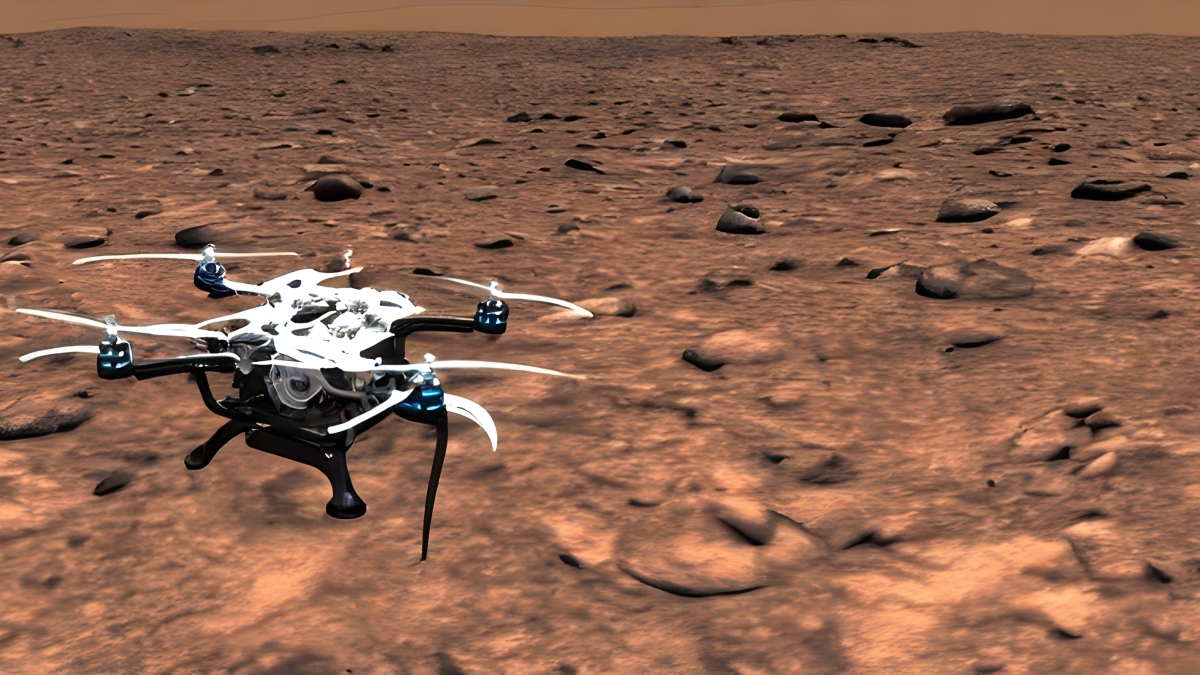NASA Grants Funding to School of Manufacturing Systems and Networks Professor

Autonomous robot navigates through space.
On July 1, 2024, Arizona State University achieved a significant milestone by becoming one of 23 minority-serving institutions to receive NASA’s MPLAN award. This $50K grant is a testament to ASU's commitment to furthering research and ensuring opportunities in STEM for historically underrepresented student communities.
The MPLAN award, which stands for “Minority University Research and Education Project (MUREP) Partnership Learning Annual Notification”, was granted to ASU professor Wenlong Zhang of the School of Manufacturing Systems and Networks in response to his proposal on behalf of the School of Earth and Space Exploration’s ASU RISE Lab, which he directs.
As a part of ASU’s School of Manufacturing Systems and Networks, the ASU Robotics and Intelligence Systems (RISE) Lab dedicates its resources to the “design and control of advanced robotic systems” and aims to “design novel structures/mechanisms and intelligent learning/control algorithms for robots to efficiently collaborate with humans and autonomously function in challenging environments.”
Zhang’s proposal outlined a plan for a project designed to “enable autonomous planetary exploration using aerial robots.” With the assistance of a small business partner, Boston Fusion, a corporation dedicated to the application of artificial intelligence and machine learning to national defense issues, Zhang plans to complete this project by December 31, 2024.
“The collaboration of industry and academia in earning grants for small seed projects like these enable them to take root and grow,” said Scott Smas, associate director for the NewSpace Initiative.
Boston Fusion, a female-owned small business in Massachusetts, “specializes in AI/ML…to develop cutting-edge algorithms and analytics that transform massive amounts of data into strategic assets.” Through its expertise in signal processing, information fusion, and intelligence systems, Boston Fusion will assist the ASU RISE Lab in building a robust and effective analytics system for autonomous robots designed for future space exploration.
Zhang’s project could revolutionize the field. By improving the stability, flexibility, and autonomy of aerial robots in extra-terrestrial flights, the team of collaborators aim to pave the way for new technologies in aerial robot design, flight control, computer vision, sensor fusion, and autonomous path and motion planning. This could open up new frontiers for space and planetary exploration, a prospect that is both thrilling and promising.
Zhang’s introduction to commercial partner Boston Fusion was enabled and facilitated by ASU/NewSpace, an initiative that plays a crucial role in integrating industry with academia through funding opportunities, while promoting the shared desired outcomes of both.
“I am excited to work on this project with ASU/NewSpace and Boston Fusion, and I hope this project will create new learning opportunities for students from underrepresented groups and lead to bigger programs with NASA to further advance ASU’s mission as a Minority-serving Institution,” said Zhang.